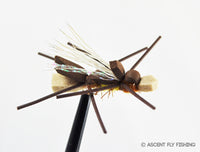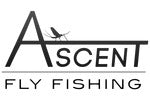
Understanding and Exploiting the Opportunistic Feeding Behavior of Trout
We have all heard the old saying "A bird in the hand is better than two in the bush." Simply put, the nugget of truth being shared here is that if an opportunity presents itself, then take it and don't let it pass you by in the hope that something better will come along. Whether there is a similar saying in the world of trout, passed on by sage lunkers to small fry in some deep river bend, this exhortation to strike at opportunities as they float by is one of the guiding principles of the feeding trout.
The opportunistic feeding behavior of trout was indelibly imprinted into the pages of my fish consciousness a few years back during trip to the high country to fish a series of lakes shelved between the rocky spurs of the continental divide. It had been a typical trip above 11,000 feet, marked by microscopic fly patterns, technical approaches towards wary fish, and sun burned knuckles from long hours casting in thin air. Feeling pretty water-wise to the entomology in the lakes we were fishing, I was staying true to the seasonal hatch, casting small midge and micro-caddis patterns coupled with a size 18 beetle. Much to my chagrin now, I mocked my buddy when he tied on a size 12 dry stonefly pattern, and assured him that there were no stoneflies of that size in that water or at that elevation.
The next hour was a steady diet of me eating crow while the trout eagerly devoured my friend’s big stonefly pattern! The rest of the trip we strove to outdo each other, tying on bigger and gaudier flies, dwarfing every natural insect we had seen, and caught more and bigger fish than we had the entire trip. A valuable lesson was learned that day. If the opportunity to grab a large meal is presented to a trout, it might just do so regardless of the hatch. Trout have a narrow feeding window between ice-off and its return, with this window shrinking the higher in elevation you go. Trout have therefore been hard-wired to pack in protein when the opportunity presents itself. So the next time you are on the water, try going big before you go home, and it might just pay off!




